The hermeticism in the MCU - Risking it all for a familiar face.
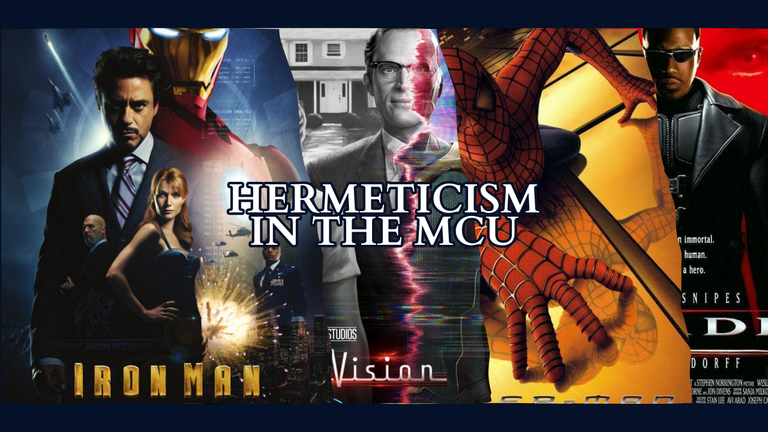
This cover was made using Canva, the movie posters were taken from Filmaffinity

ENGLISH
Although since the premiere of Avengers Endgame I have progressively lost my interest in the Marvel cinematic universe, I would be lying if I told you that I was not its faithful follower for several years, the idea of a series of interconnected films that would give life to several of the most recognizable superheroes on popular culture seemed fascinating to me, especially if we considered that they all maintained a fairly decent average quality, with some successes and others failures.
There were many factors that combined to provide an optimal experience: simple but effective narratives, quality special effects, very decent performances by well-cast actors and the intermittent inclusion of references and Easter eggs that helped solidify the idea that all the films that we were seeing were occurring in the same reality.
Unfortunately, it is evident that for a couple of years now, Kevin Feige's master symphony has been disconnecting from what made it so great in the first place, and, in the midst of a saturation of content that is unable to keep us hooked, each time It becomes easier to gravitate towards other alternatives inside and outside of superhero cinema: an idea that is undoubtedly losing a lot of force in the eyes of the average viewer.
We could spend hours talking about all the circumstances that have led to us currently finding ourselves in this situation: the prevalence of quantity over quality in terms of script and special effects, the weariness of audiences due to the large number of annual releases in theaters and Disney+, and even more bitter: that we are simply ready to surpass the MCU and want something "different."
However, today I would like to focus on a different aspect of the Marvel experience that has been lost over time, and that although it is not the main reason why the studio has lost prevalence in the current landscape, it could be intrinsically connected to our lack of interest in recent years, even if we don't realize it.
Hermeticism in the Marvel Cinematic Universe.
You see, since its conception the Marvel cinematic universe has made too many "right decisions", decisions that seen from a modern perspective could feel quite obvious, but that at the time perhaps were not so much.
Iron Man (Released in 2008 and directed by Jon Favreau) was a general clean slate, rejecting all previous films that had been created with Marvel characters as protagonists (Regardless of whether the studio owned the rights or not) and only recognized under their mantle those things that they had created directly from now on.
This creates a very particular situation where cohesion is easier to achieve and problems with "canon" only arise when the creatives involved in each MCU project are careless. But, with appropriate patience, it allows more than a franchise of interconnected films, this universe can turn into a canvas on which basically any story could be built, making everything consistent in terms of premises and aesthetics.
2003 Hulk, directed by Ang Lee
A very clear example of this was the creation of Hulk 2008, a film that, although it does not bother to reintroduce us to the character again (considering that Ang Lee's version in 2003 had already shown us its origins), adapted all the narrative elements of Bruce Banner so that it would operate in harmony with what was established in Iron Man just a few months ago, something reinforced by the post-credits scenes of both films, a young tradition that little by little would become the cultivation of all the crossovers that were to come.
Even though the rights to Hulk belonged to Universal (And it still does, at least when it comes to Hulk solo films), both studios could have planned to reuse Eric Bana's version, however, this would have taken away from Feige and company the ability to build this new universe brick by brick, and obviously we didn't want this...
2008 Hulk, directed by Louis Leterrier and starring Edward Norton as Bruce Banner/Hulk, still considered canon even though Norton was replaced by Mark Ruffalo
This same philosophy was maintained for almost 10 years, Spiderman (owned by Sony) made his first appearance with the performance of Tom Holland (although it was perfectly possible to use Andrew Garfield if he really wanted to, who came from underappreciated films by the public, but at the same time it was one of the only outstanding aspects of them). Daredevil and Punisher are other clear examples, adapting new versions within the mini-universe of Netflix series that also became the most beloved live-action adaptations of these iconic characters, remember that both had already ventured onto the big screen previously. Obviously, we are in 2023 and the acceptance that the defenders have within the main canon is quite dubious, but At the moment it was obvious that both things (the Netflix series and the Disney movies) occurred within the same continuity, but anyway, that is a topic for another day...
My point is that there was an unwritten rule: only what we create from scratch exists, so we can build a situation where each character, no matter how small or big, is perfectly adapted to the Marvel cinematic universe, both in their individual stories , as in the eventual crossovers in which each one participates.
2005 Fantastic Four, non canon with the MCU. Chris Evans plays Jonny Storm in this version, the same actor that later played Captain America in the MCU
The sacrifice was clear, following this rule we could not have recognizable characters like the X-Men or the Fantastic Four, played by actors who would have the ability to move millions of people to movie theaters... but it was not feasible since Marvel did not even have the rights to these interpretations, nor to the films where they had been made.
Hermeticism, then, is a term that I like to use to define the closed nature that maintained the Marvel cinematic universe until 2019, where each film, series and short is conceived with the intention of being part of it, maintaining the thematic and narrative harmony of the "general" story, something widely exploited by crossovers such as Avengers and Civil War.
The breaking of Marvel's secrecy, first steps.
And what happened in 2019? After debating this internally, I came to the conclusion that the hermeticism of the MCU was lost, a consequence of the premiere of two films that (Before the pandemic) would introduce two concepts that served as a starting point for breaking the closed nature of the universe. : Time travel and the existence of the Multiverse. Concepts introduced in Endgame and Spiderman: Far from Home...
What should I tell you about endgame? The fourth film of The Avengers and the definitive closure of the infinity saga, a conclusion to a solid series of films, which knew how to bring to safe harbor the narrative arcs of several of the most iconic characters: Iron Man, Captain America, Black Widow, etc., are just some of the examples of stories that concluded in 2019 clearly with the intention of not being disturbed.
Although I admit that I preferred Infinity War over Endgame, we cannot deny that it is an exciting and moving film, one of the most gratifying experiences I have had in front of a movie sauce, riddled with moments that I will never forget despite the fact that things they would later derail.
However, there was something that always bothered me too much, because I felt that for the first time in more than 10 years of movies, the hermeticism that I used to adore would be abandoned... and this is a direct consequence of time travel, a narrative element that plays a crucial role within the entire film.
I don't want to go into details so as not to go on too long, but Endgame handles time travel in a relatively simple way: when we travel to the past we create a new timeline, where the past is our present and we will modify that "new future".
Obviously, in practice this creates several complications, but again, this is not my point...
Avengers Endgame's Loki, an alternative version that manages to escape the Avengers after the events of the 2012 film.
The point is that the Marvel cinematic universe used this new concept as a sneaky pilot for one of its new series: Loki, starring an alternative version of the character who managed to escape from the hands of the Avengers after the events of Avenger 1.
In principle, although this alternative timeline did not represent a break in the secrecy of the MCU, we must recognize that it opened a range of possibilities to ALL of its characters, allowing despite Loki's death in the main timeline (In one of the most devastating and shocking events of Infinity War), we had the king of deception alive and well within an alternate reality.
There were two possible scenarios and I didn't like either one: 1. Loki (The Disney Plus series) would be an isolated adventure that didn't touch the main continuity, feeling quite superfluous. And 2. Despite the initial disconnection with the main continuity, it would end up connecting with it thanks to a conflict between the different timelines, something that I also did not like considering what it implies for the secrecy of the MCU.
Loki's alternate version, starring on his own exclusive Disney Plus series on 2021
Now we know that the second scenario came true, and after the first season of this series introduced the character of Kang, he had an important participation in Ant-Man 3 and will represent the main villain of the current phase of the MCU.
Familiar faces return.
However, for me the existence of Far From Home was more worrying, a film that ironically presented itself as a subtle prologue to Endgame, and, in turn, would raise the possible ways to break the hermeticism of the MCU.
You see, we know that Far From Home introduced the concept of Multiverse, but at the same time presented it as an illusion that was part of the large number of lies that Mysterio constructed to deceive Peter Parker in order to gain everyone's trust.
Curiously, I don't feel that this false concept represented a risk to hermeticism, and in reality, the most risky thing in the end was the inclusion of Jonah Jameson reinterpreted by J.k Simmons, who we already know had previously played the same character in the Spider-Man trilogy. Sam Raimi's Man, which WAS outside the Marvel cinematic universe.
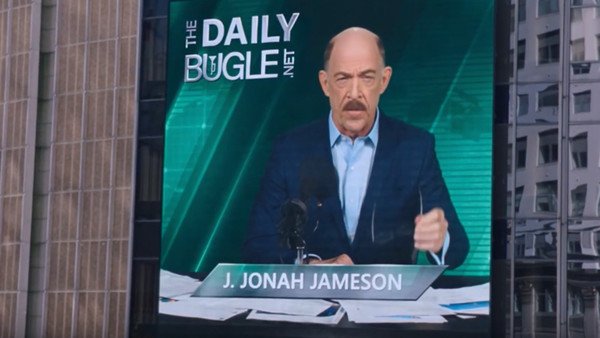
J.K Simmons reprising his role as J. Jonah Jameson (A non MCU performance originally) in Spider-Man Far from Home (A MCU film).
Do you see where things are going?
At the time it was easy to feel excited by the inclusion of J.K Simmons in Far from Home, especially because it gave us to understand that it was possible that an actor who had played a character in a certain superhero movie outside of the MCU could play him again within of the universe.
Expectations VS reality.
This was particularly useful for adapting certain beloved castings into the main continuity without breaking the secrecy, and if you ask me, Spider-Man Far From Home was the perfect testing ground for this.
This would obviously only make sense if Marvel respected their rule (Yes, the "only what we create from scratch" rule I told you about at the beginning), but we know now that this was never the plan, and, painfully, , Jonah Jameson was a sneaky way to make the Multiverse official.
Something that Endgame and Far From Home have in common is that their intentions to break the secrecy of the MCU were quite ambiguous, and no, in a way, they did not materialize until a couple of years later (with Loki and No Way Home, respectively). Regarding this, I can think of a third example that also maintained this ambiguity: Wandavision, the first Disney Plus exclusive series released in 2021, causing a large number of today u Being the first release in the middle of the pandemic after a year of drought, for better or worse.
I loved Wandavision, it was experimental, it played with interesting concepts and it had a high level of production. Furthermore, it came at a time when we were eager to see what Marvel had to offer us, something particularly special considering that they would begin producing their own series, taking characters and plotlines directly from the film, something that had not been seen until now.
Evan Peters as Quicksilver in Wandavision, a character originally played by Aaron Johnson in the MCU
And what was the problem with Wandavision? A couple of episodes later, Quicksilver was introduced as a secondary character, only it was not the version that we all knew of the runner (Played by Aaron Johnson), but Evan Peters' version, originally conceived for Fox's X-Men films, which, apart, had recently been acquired by Disney.
I say that it was "ambiguous" because within the logic of the story this version of Pietro had not come from another universe, but was a kind of disturbed illusion of Wanda that served more as a wink to the audience than as reliable proof of the Multiverse. .
At worst, it gave us the impression that Fox was willing to "loan" its prized iterations of characters, who were originally isolated from the MCU.
Officially abandoning the secrecy of the MCU.
So, what was the real first break in the secrecy of the MCU? If you ignore all these examples due to lack of evidence (something I usually do), the first specific moment in which this happened was with the premiere of Spider-Man No Way Home at the end of 2021, characterized by bringing together the three live versions. action of Peter Parker (Tom Holland, Andrew Garfield and Tobey Maguire) in a unique film, after Doctor Strange altered the Multiverse with a spell trying to help Holland's Spidey.
I have always felt conflicted about the existence of No Way Home, since Spiderman is one of my favorite superheroes and having had the opportunity to see Tobey Maguire playing him again on the big screen is priceless, apart from this, No Way Home went to the trouble of bringing together most of the villains from the character's cinematic history (Alfred Molina as Doc Ock, Willem Dafoe's Green Goblin, and Jamie Foxx's Electro, to name a few)... something that makes it hard to ignore. nostalgia and maintaining objectivity.
In the long term, however, No Way Home represented an opening to a disastrous Pandora's box, considering that for the first time in almost 15 years, the MCU would stop being hermetic and we would need to see something created before 2008 to "absorb" everything. that a film or series has to offer us, being in this case the three Spider-Man films directed by Sam Raimi and the two Amazing Spiderman films directed by Marc Webb, none of these conceived with the intention of being part of the Marvel Universe .
It may sound overly dramatic but I have always considered This is considered a sacrilege in two senses: on the one hand we disrespect a group of films that were not intended to be part of a narrative as it is, and on the other hand we include within the current canon works that were not constructed with the purpose of forming part of it, affecting the coherent and consistent nature that made it so attractive in the first place.
Works like Multiverse of Madness would only add more salt to the wound, and even films created by other studios (Venom 2 or Across the Spiderverse) would end up adding to this break from the main canon.
The consequences.
Many will wonder, is this situation really so negative? What if I want to see certain performances that I'm very nostalgic for again in a current movie?
The truth is that although there is currently no one who has created a break from this secrecy that is offensive enough to make it worth abandoning the entire MCU (something that DC did do with the flash a few months ago), I think that opens a very interesting debate about artistic integrity and the way we consume entertainment in general, much more focused on seeing rehashes of stories that rekindle our nostalgia without giving importance to quality.
Even more painful is that Marvel faces this in an arbitrary and selective way, rejecting within its own canon wonderful products such as Netflix series (Especially Daredevil), bringing to its own series and films only those elements that interest them without fully understanding minimum that made them attractive in the first place.
Charlie Cox playing Daredevil in the Netflix series, originally considered part of the MCU Canon*
Charlie Cox, for example, continues to play the Hell's Kitchen lawyer in No Way Home and the She Hulk series, but he totally ignores the great atmosphere of the Netflix series and the events that made him an interesting character, becoming a shell of what I used to be.
Things are not going to get better, there are rumors of Deadpool 3 joining the world of the X-Men with the MCU, rumors of Dafne Keen (Logan, 2017) reprising her role as X-23 in Secret Wars, or even plans to see back to Nicolas Cage playing Ghost Rider again, or Wesley Snipes' blade for some reason.
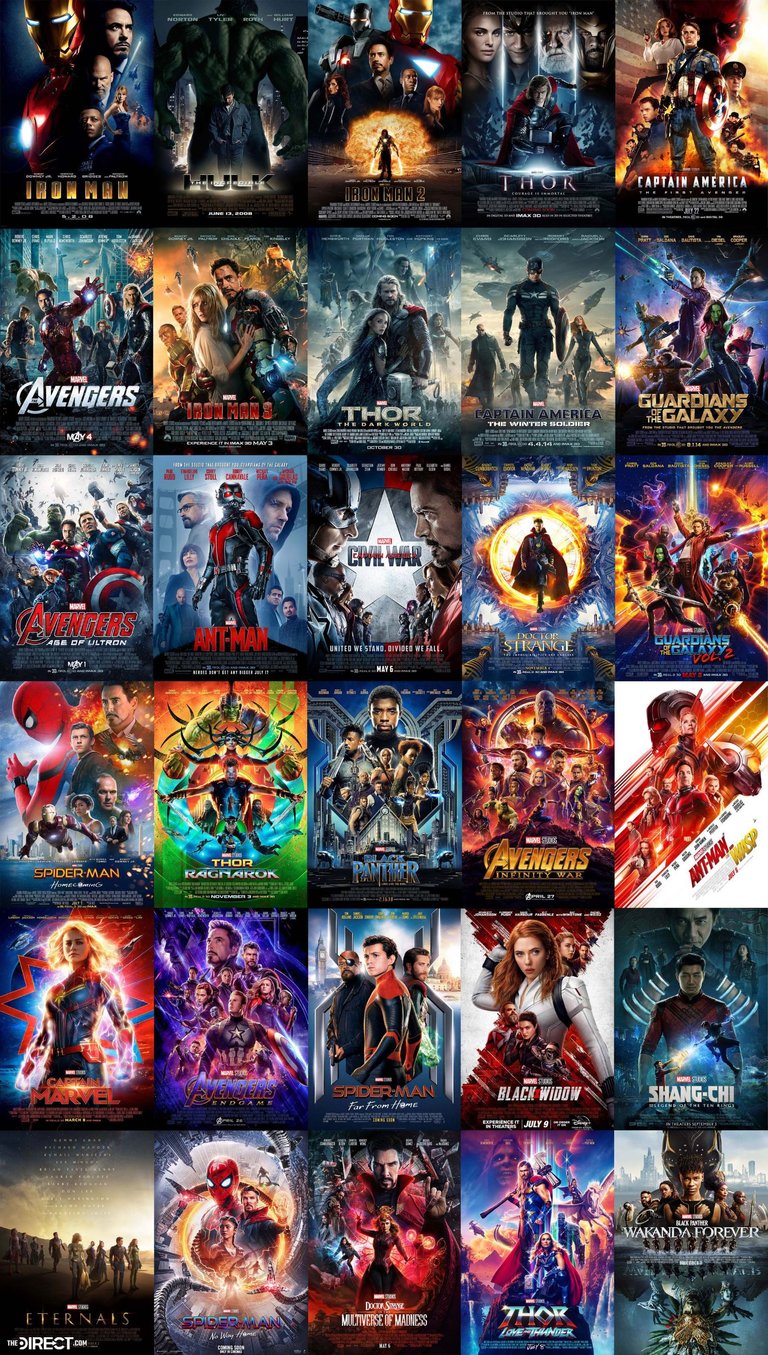
Nothing is untouchable, everything can come back and nothing ever has to end, if you are not alive we will recreate you with CGI.

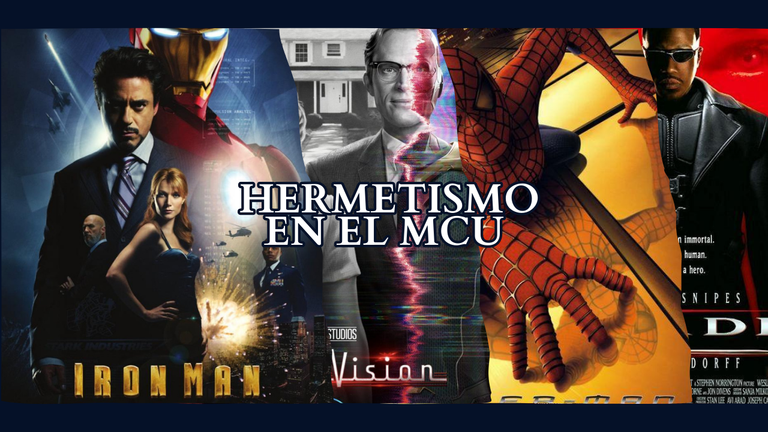
Esta portada fue creada usando canva, los pósters de las películas fueron tomadas de Filmaffinity

ESPAÑOL
Aunque desde el estreno de Avengers Endgame he perdido progresivamente mi interés por el universo cinematográfico de Marvel, mentiría si les digo que no fui su fiel seguidor durante varios años, la idea de una serie de películas interconectadas que le dieran vida a varios de los superhéroes más reconocibles de la cultura popular me parecía fascinante, especialmente si considerabamos que todas mantenían una media de calidad bastante decente, con algunos aciertos y otros desaciertos.
Habían muchos factores que se mezclaban para brindar una experiencia óptima: narrativas simples pero efectivas, efectos especiales de calidad, performances muy decentes de actores bien casteados y la inclusión intermitente de guiños y Easter eggs que ayudaban a solidificar la idea de que todas las películas que estábamos viendo se encontraban ocurriendo en la misma realidad.
Lastimosamente, es evidente que desde hace un par de años la sinfonía maestra de Kevin Feige se ha ido desconectando con aquello que la hizo tan grandiosa en primer lugar, y, en medio de una saturación de contenido que es incapaz de mantenernos enganchados, cada vez se hace más fácil gravitar hacia otras alternativas dentro y fuera del cine de superhéroes: una idea que sin duda está perdiendo mucha fuerza en los ojos del espectador promedio.
Podríamos pasar horas hablando sobre todas las circunstancias que han llevado a que nos encontremos actualmente en esta situación: la prevalencia de la cantidad sobre la calidad en términos de guión y efectos especiales, el desgaste del publico ante la gran cantidad de lanzamientos anuales en los cines y Disney+, y más amargo aún: que simplemente estamos preparados superar el MCU y queremos algo "diferente".
No obstante, hoy me gustaría enfocarme en un aspecto diferente de la experiencia Marvel que se ha perdido con el tiempo, y que si bien no es la razón principal por la cual el estudio ha perdido prevalencia en el panorama actual, si podría estar intrínsecamente conectado con nuestra falta de interés estos últimos años, aunque no nos demos cuenta.
El hermetismo en el Universo Cinematográfico de Marvel
Verán, desde su concepción el universo cinematográfico de Marvel tomó demasiadas "decisiones correctas", decisiones que vistas desde una óptica actual podrían sentirse bastante obvias, pero que en su momento quizá no lo eran tanto.
Iron Man (Estrenada en 2008 y dirigida por Jon Favreau) era un borrón y cuenta nueva general, que rechazaba todas las películas anteriores que se habían creado con personajes de Marvel como protagonistas (Independientemente de que el estudio fuese propietario de los derechos o no) y solamente reconocía bajo su manto aquellas cosas que hubiesen creado ellos directamente a partir de ahora.
Esto crea una situación muy particular en dónde la cohesión es más sencilla de alcanzar y los problemas con el "canon" solamente surgen cuando los creativos envueltos en cada proyecto del MCU son descuidados. Pero, con la paciencia aduecada, permite que más que una franquicia de películas interconectadas entre si, este universo fuese un lienzo sobre el cual se podía construir básicamente cualquier historia, haciendo que todo tuviese consistencia en términos de premisas y estéticas.
Hulk, versión de 2003 dirigida por Ang Lee
Un ejemplo muy claro de esto fue la creación de Hulk 2008, una película que si bien no se toma la molesta de reintroducirnos al personaje otra vez (considerando que la versión de Ang Lee en 2003 ya nos había mostrado los orígenes del mismo), adaptaba todos los elementos narrativos de Bruce Banner para que operara en armonía con lo establecido en Iron Man tan solo unos meses atras, algo reforzado por las escenas post creditos de ambos filmes, una tradición joven que poco a poco se convertiría en el cultivo de todos los crossovers que estaban por venir.
A pesar de que los derechos de Hulk pertenecían a Universal (Y sigue siendo así, al menos cuando se trata de una película se Hulk solo), ambos estudios podrían haber pautado reutilizar la versión de Eric Bana, no obstante, esto le hubiese quitado a Feige y compañía la capacidad de construir este nuevo universo ladrillo por ladillo, y obviamente no queríamos esto...
Hulk de 2008, dirigida por Louis Leterrier y considerada canon dentro del MCU, protagonizada por Edward Norton en el papel de Bruce Banner/Hulk aunque posteriormente fue reemplazado por Mark Ruffalo
Esta misma filosofía se mantuvo a lo largo de casi 10 años, Spiderman (propiedad de Sony) hizo su primera aparición con el performance de Tom Holland (aunque fuese posible utilizar a Andrew Garfield si de verdad se lo proponían, quien venía de películas poco apreciadas por el público, pero que al mismo tiempo resultaba uno de los únicos aspectos destacados de las mismas). Daredevil y Punisher son otros ejemplos claros, adaptando nuevas versiones dentro del mini-universo de series de Netflix que aparte se convertieron en las adaptaciones live action más amadas de estos iconicos personajes, recordemos que ambos ya habían incursionado en la pantalla grande previamente . Obviamente, estamos en el 2023 y la aceptación que tienen los defenders dentro del canon principal es bastante dudosa, pero en su momento era obvio que ambas cosas (las series de Netflix y las películas de Disney) ocurrían dentro de la misma continuidad, pero en fin, ese es un tema para otro día...
Mi punto es que había una regla no escrita: solamente existe lo que nosotros creamos desde 0, así podemos construir una situación en dónde cada personaje por pequeño o grande que sea, está perfectamente adaptado al universo cinematográfico de Marvel, tanto en sus historias individuales, como en los eventuales crossovers en los que cada uno participe.
Fantastic Four del 2005, no canon dentro del MCU, Chris Evans interpretaba a Jonny Storm en ella antes de asumir el rol de Capitán América en el MCU
El sacrificio era claro, siguiendo esta regla no podíamos disponer de personajes reconocibles como los X-Men o los 4 fantásticos, interpretados por actores que tendrían la capacidad de mover millones de personas a las salas de cine... pero no resultaba factible puesto que Marvel ni siquiera contaba con los derechos sobre estás interpretaciones, ni sobre las películas en dónde se habían realizado.
El hermetismo, entonces, es un término que me gusta usar para definir la naturaleza cerrada que mantenía el universo cinematográfico de Marvel hasta el 2019, en dónde cada película, serie y corto está concebido con la intención de formar parte del mismo, manteniendo la armonía temática y narrativa de la historia "general", algo ampliamente aprovechado por crossovers como Avengers Y Civil War.
La ruptura del hermetismo de Marvel, primeros pasos.
¿Y que pasó en 2019? Luego de debatir esto internamente, llegué a la conclusión de que se perdió el hermetismo del MCU, consecuencia del estreno de dos películas que (Antes de la pandemia) introducirían dos conceptos que sirvieron como punto de partida para el rompimiento de la naturaleza cerrada del universo: Los viajes en el tiempo y la existencia del Multiverso. Conceptos introducidos en Endgame y Spiderman: Far from Home...
¿Que debo decirles de endgame? La cuarta película de The Avengers y el cierre definitivo de la saga del infinito, una conclusión a una serie de películas sólida, que, supo llevar a puerto seguro los arcos narrativos de varios de los personajes más iconicos: Iron Man, Capitán américa, Black Widow, etc, son solo algunos de los ejemplos de las historias que concluyeron en 2019 claramente con la intención de no ser perturbados.
Aunque Admito que preferí Infinity war por encima de Endgame, no podemos negar que es una película emocionante y conmovedora, una de las experiencias más gratificantes que he vivido frente a una salsa de cine, plagada de momento que nunca olvidaré a pesar de que las cosas se descarrillaran posteriormente.
No obstante, hubo algo que siempre me incomodó demasiado, porque sentía que por primera vez en más de 10 años de películas, el hermetismo que solía adorar se vería abandonado... y esto es una consecuencia directa de los viajes en el tiempo, un elemento narrativo que juega un rol crucial dentro de toda la película.
No quiero entrar en detalles para no alargarme más de la cuenta, pero Endgame maneja los viajes en el tiempo en una forma relativamente sencilla: cuando viajamos al pasado creamos una nueva línea de tiempo, en dónde el pasado es nuestro presente y modificaremos ese "nuevo futuro".
Obviamente, en la práctica esto crea varias complicaciones, pero de nuevo, este no es mi punto...
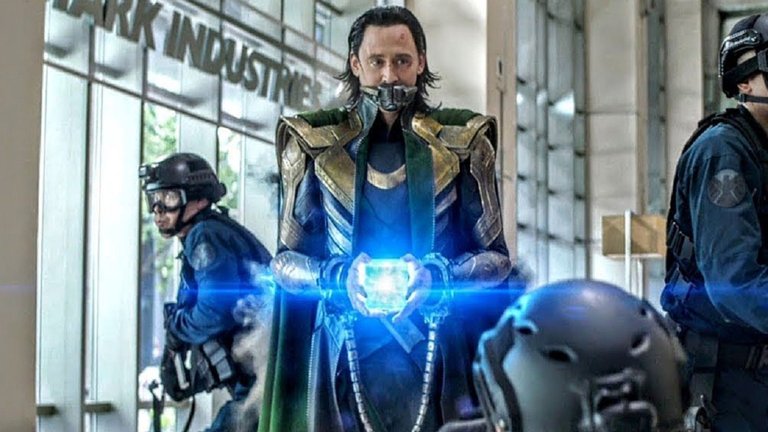
Source
La versión de Loki de Avengers Endgame, quien logra escapar de los vengadores luego de los eventos de la película del 2012
La cuestión es que el universo cinematográfico de Marvel utilizó este nuevo concepto como piloto disimulado para una de sus nuevas series: Loki, protagonizada por una versión alternativa del personaje que lograba escapar de las manos de los vengadores tras los eventos de Avenger 1.
En principio, si bien esta línea de tiempo alternativa no representaba una ruptura del hermetismo del MCU, debemos reconocer que abría un abanico de posibilidades a TODOS sus personajes, permitiendo que a pesar de la muerte de Loki en la línea de tiempo principal (En uno de los eventos más devastadores e impactantes de Infinity War), tuviésemos al rey del engaño vivito y coleando dentro de una realidad alterna.
Habían dos posibles escenarios y ninguno me gustaba: 1. Loki (La serie de Disney plus) sería una aventura aislada que no tocaba la continuidad principal, sintiéndose bastante superfua. Y 2. A pesar de la desconexión inicial con la continuidad principal, terminaría conectandose con la misma gracias a un conflicto entre las distintas líneas de tiempo, algo que tampoco me gustaba considerando lo que implica para la hermetismo del MCU.
La versión alternativa de Loki mostrada en Endgame, protagonizando está vez su propia serie exclusiva para Disney Plus
Ahora sabemos que el segundo escenario se hizo realidad, y luego de que la primera temporada de esta serie introdujera al personaje de Kang, el mismo tuvo una participación importante en Ant-Man 3 y representará el villano principal de la fase actual del MCU.
Vuelven las caras conocidas.
No obstante, para mí resultaba más preocupante la existencia de Far From Home, una película que irónicamente se presentaba así misma como un prólogo sutil de Endgame, y, a su vez, elevaría las posibles formas de romper el hermetismo del UCM.
Verán, sabemos que Far From Home introducia el concepto del Multiverso, pero al mismo tiempo lo presentaba como una ilusión que formaba parte de la gran cantidad de mentiras que Mysterio construyó para engañar a Peter Parker con la finalidad de ganarse la confianza de todos.
Curiosamente, no siento que este concepto falso representara un riesgo para el hermetismo, y en realidad, lo más riesgoso al final fue la inclusión de Jonah Jameson reinterpretado por J.k Simmons, quien ya sabemos había interpretado previamente al mismo personaje en la trilogía de Spider-Man de Sam Raimi, la cuál SI estaba fuera del universo cinematográfico de Marvel.
¿Ya ven por dónde va la cosa?

J.K Simmons repitiendo su papel de J.Jonah Jameson (Originalmente creado fuera del MCU) en Spiderman Far From Home (Una película del MCU).
En su momento era fácil sentirse emocionado por la inclusión de J.K Simmons en Far from Home, especialmente porque nos daba a entender que era posible que un actor que había interpretado a una personaje en una película de cierto superhéroe fuera del MCU podía volver a interpretarlo dentro del universo.
Expectativas VS realidad.
Esto era particularmente útil para adaptar ciertos castings queridos en la continuidad principal sin romper el hermetismo, y, si me lo preguntan a mi, Spider-Man Far From Home era el Campo de pruebas perfecto para ello.
Esto, obviamente, solo tendría sentido si Marvel respetaba su regla (Si, la regla de "solo existe lo que nosotros creamos desde 0" de la que les hable al principio), pero sabemos ahora que este nunca fue el plan, y, dolorosamente, Jonah Jameson era una forma disimulada de oficializar el Multiverso.
Algo que Endgame y Far From Home tienen en común, es que sus intenciones de romper el hermetismo del MCU eran bastante ambiguas, y no, en cierta forma, no se concretaron sino hasta un par de años después (con Loki y No Way Home, respectivamente). Respecto a esto, se me ocurre un tercer ejemplo que también mantuvo esta ambigüedad: Wandavision, la primera serie exclusiva de Disney Plus estrenada en 2021, causante de una gran cantidad de hoy u Siendo el primer lanzamiento en medio de la pandemia luego de un año de sequía, para bien o para mal.
A mí Wandavision me encantó, era experimental, jugaba con conceptos interesantes y contaba con un nivel de producción alto, aparte, llegaba en un momento en el que estábamos ansiosos por ver qué tenía Marvel para ofrecernos, algo particularmente especial considerando que empezarían a producir sus propias series, tomando directamente personajes y plotlines directamente de la película, algo que hasta el momento no se había visto.
Evan Peters como Quicksilver en Wandavision, un personaje originalmente interpretado por Aaron Johnson en el MCU
¿Y cuál fue el problema de Wandavision? Un par de episodios adelante se introdujo a Quicksilver como personaje secundario, solo que no era la versión que todos conocíamos del corredor (Interpretada por Aaron Johnson), sino la versión de Evan Peters, originalmente concebida para las películas de X-Men de Fox, que, aparte, había Sido recientemente adquirida por Disney.
Digo que fue "ambigua" porque dentro de la lógica de la historia está versión de Pietro no había salido de otro universo, sino que era una especie de ilusión perturbada de Wanda que servía más como guiño a la audiencia que como una prueba fehaciente del Multiverso.
En el peor de los casos, nos daba a entender que Fox estaba dispuesto a "prestar" sus preciadas iteraciones de personajes, quienes originalmente estaban aisladas del MCU.
Abandonando el hermetismo del MCU oficialmente.
Entonces, ¿Cuál fue la verdadera primera ruptura del hermetismo del MCU? Si ignoras todos estos ejemplos por falta de evidencia (Algo que yo suelo hacer), el primer momento concreto en el que ocurrió esto fue con el estreno de Spider-Man No Way Home a finales del 2021, caracterizada por juntar a las tres versiones live action de Peter Parker (Tom Holland, Andrew Garfield y Tobey Maguire) en una película única, luego de que Doctor Strange alterara el Multiverso con un hechizo tratando de ayudarle el Spidey de Holland.
Siempre me he sentido conflictuado frente a la existencia de No Way Home, puesto que spiderman es uno de mis superhéroes favoritos y haber tenido la oportunidad de ver a Tobey Maguire interperandolo otra vez en la gran pantalla no tiene precio, aparte de esto, No Way Home se tomaba la molestia de reunir a la mayoría de los villanos de la historia cinematográfica del personaje (Alfred Molina como Doc Ock, el duende verde de Willem Dafoe y electro de Jamie Foxx, por mencionar algunos)... algo que hace difícil ignorar la nostalgia y mantener la objetividad.
A largo plazo, en cambio, No Way Home representaba una apertura a una caja de Pandora desastrosa, considerando que por primera vez en casi 15 años, el MCU dejaría de ser hermético y necesitaríamos ver algo creado antes del 2008 para "absorber" todo lo que una película o serie tiene para ofrecernos, siendo en este caso las tres películas de Spider-Man dirigidas por Sam Raimi y las dos películas de Amazing Spiderman dirigidas por Marc Webb, ninguna de estas concebida con la intención de formar parte del Universo de Marvel.
Quizá suene demasiado dramático pero siempre he considerado esto un sacrilegio en dos sentidos: por un lado le faltamos el respeto a un grupo de filmes que no pretendían formar parte de una narrativa como está, y por otro lado incluimos dentro del canon actual obras que no fueron construidas con la finalidad de formar parte de el, afectando la naturaleza coherente y consistente que lo hizo tan atractivo en primer lugar.
Obras como Multiverse of Madness solo añadirían más sal a la herida, e incluso, películas creadas por otros estudios (Venom 2 o Across the Spiderverse) terminarían sumándose a este quiebre del canón principal
Las consecuencias.
Muchos se preguntarán, ¿De verdad está situación es tan negativa? ¿Que pasa si quiero ver ciertos performances a los que le tengo mucha nostalgia otra vez en una película actual?
La verdad es que aunque actualmente no existe alguien que haya creado una ruptura a este hermetismo que sea lo suficientemente ofensiva como para que valga la pena abandonar todo el MCU (Algo que por cierto si hizo DC con the flash hace unos meses), creo que abre un debate interesantísimo sobre la integridad artística y la forma en la que consumimos entretenimiento en general, mucho más enfocada por ver refritos de historias que nos reaviven la nostalgia sin darle importancia a la calidad.
Más doloroso aún es que Marvel afronta esto de forma arbitraria y selectiva, rechazando dentro de su propio canon productos maravillosos como las series de Netflix (Especialmente daredevil), llevando a sus propias series y películas solamente aquellos elementos que les interesan sin comprender en lo más mínimo que les hacía atractivos en primer lugar.
Charlie Cox en la serie de Daredevil de Netflix, originalmente considerada parte del cañón del MCU
Charlie Cox, por ejemplo, sigue interperando al abogado de Hell's Kitchen en No Way Home y la serie de She Hulk, pero ignora totalmente la genial atmósfera de la serie de Netflix y los eventos que lo hicieron un personaje interesante, convirtiéndose en un cascarón de lo que solía ser.
Las cosas no van a mejorar, hay rumores de Deadpool 3 juntando el mundo de los X-Men con el MCU, rumores de Dafne Keen (Logan , 2017) retomando su rol de X-23 en Secret Wars, o incluso, planes para ver de nuevo a Nicolás Cage interpretando a Ghost Rider otra vez, o el blade de Wesley Snipes por alguna razón.

Nada es intocable, todo puede volver y nada nunca tiene por qué terminar, si no estás vivo te recreamos con CGI.

Twitter/Instagram/Letterbox: Alxxssss
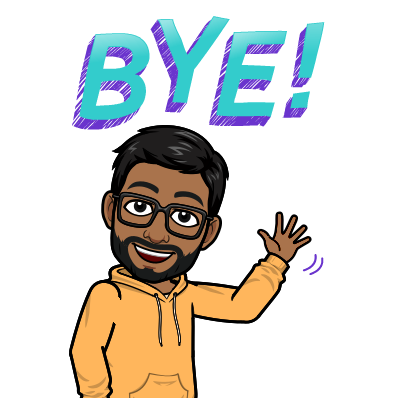
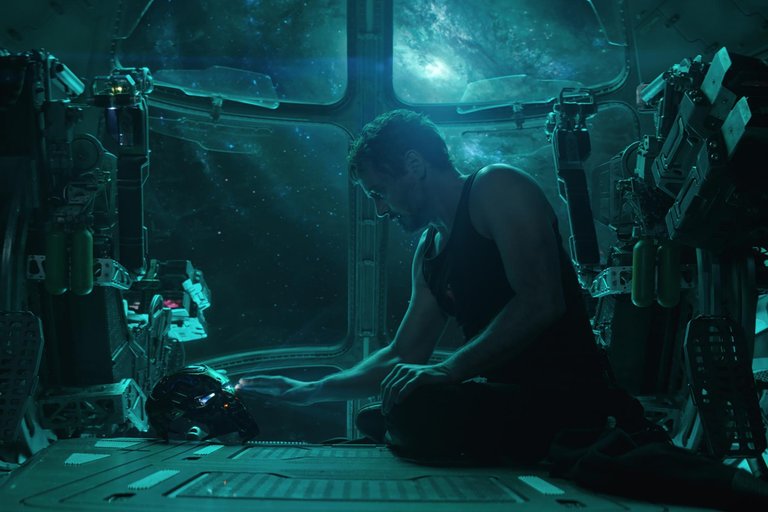
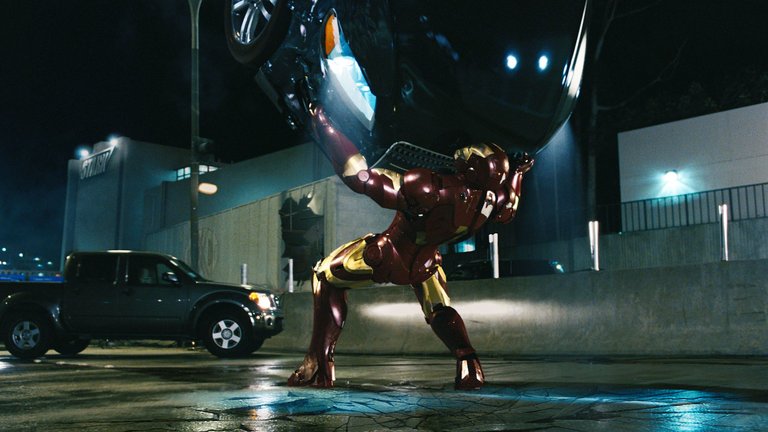
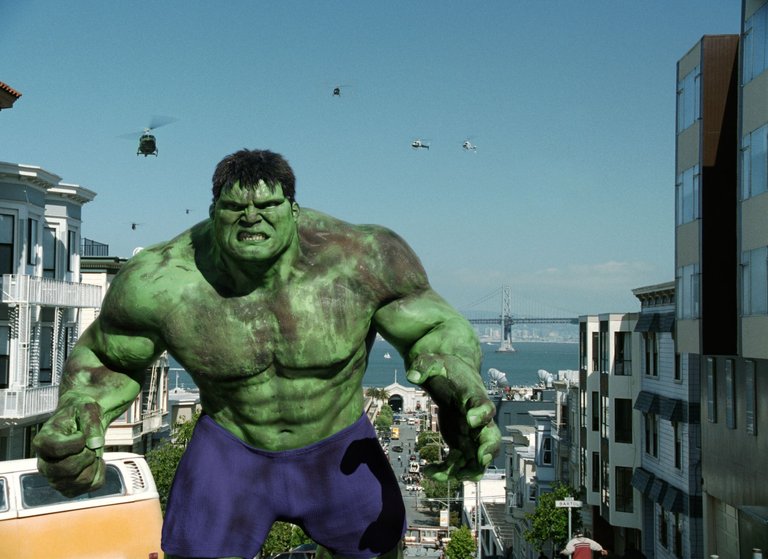
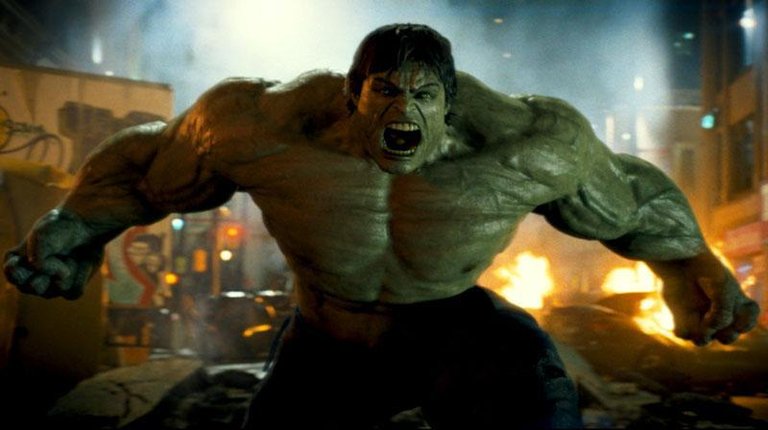
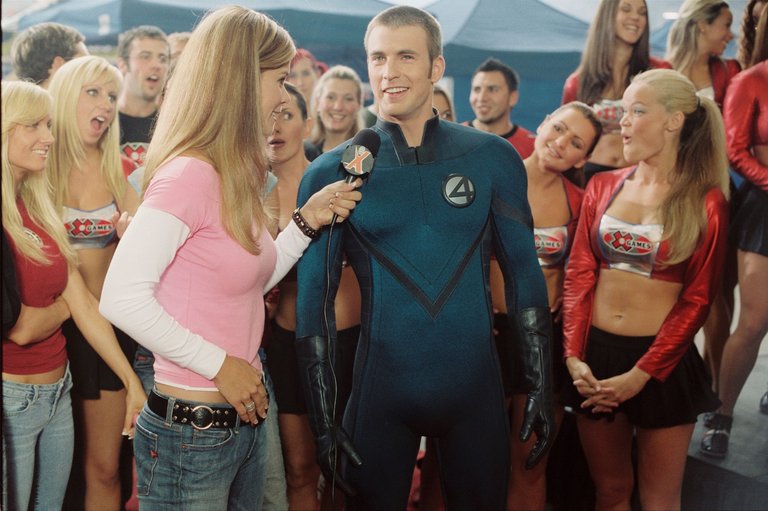
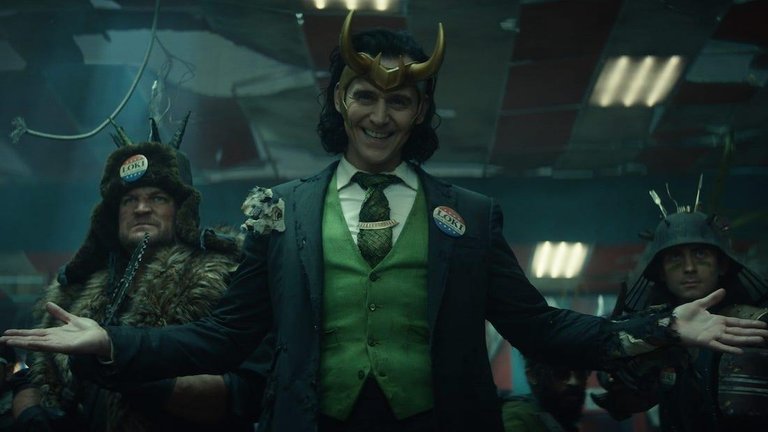
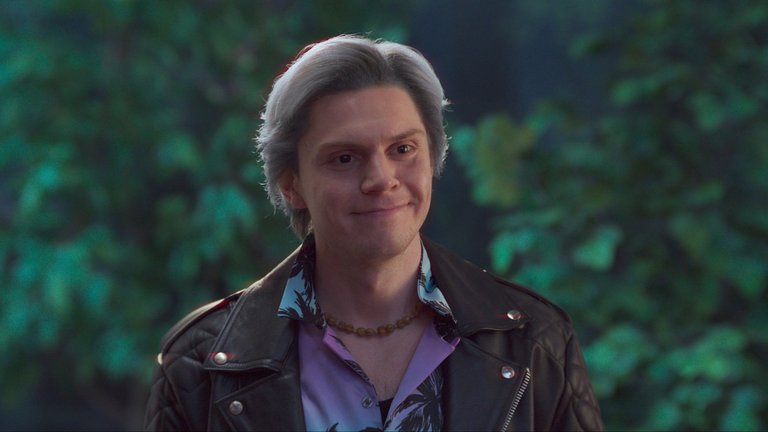
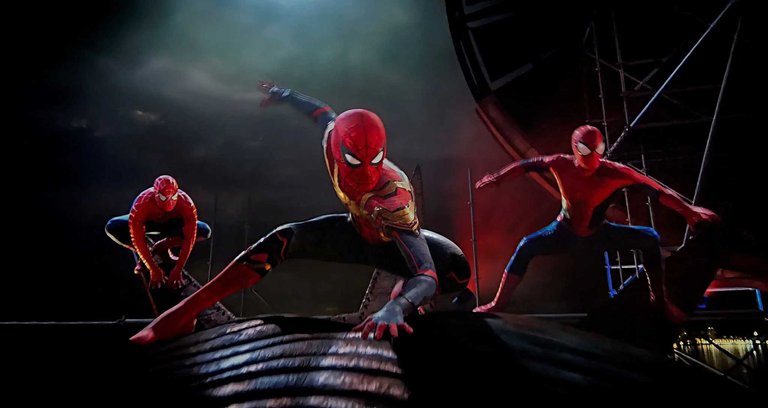
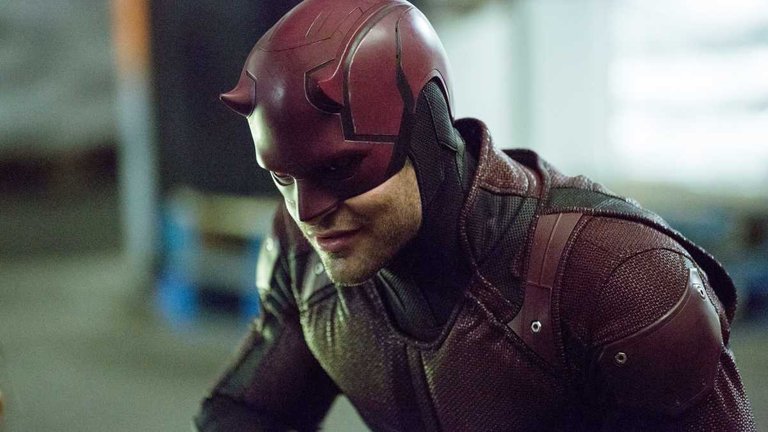
damn what a nice observation there mate!!
Thanks! 😅